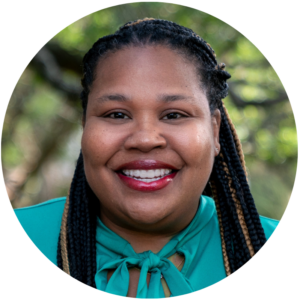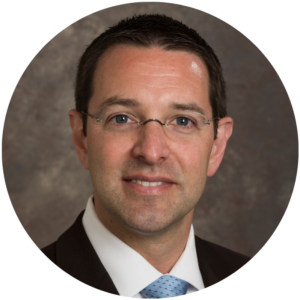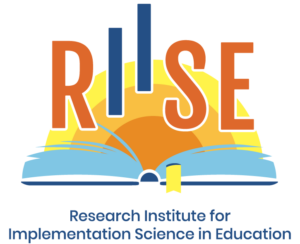 |
|
Sonia Cabell, Ph.D., is an Associate Professor in the School of Teacher Education and the Florida Center for Reading Research at Florida State University. Her research seeks to better understand how to strengthen early literacy skills among young children living in poverty (ages 3-8), including how to help teachers and parents foster this learning. The chief aim of her work is to prevent later difficulties in reading and writing by laying a strong foundation for children early in their school careers. Dr. Cabell has authored over 70 publications, including peer-reviewed articles, books, book chapters, and early childhood language and literacy curricula. She is the lead editor of the forthcoming Handbook on the Science of Early Literacy from Guilford Press. Dr. Cabell has served as Principal Investigator or co-Principal Investigator on federally funded research projects totaling approximately $10 million dollars. She has been an advisor or consultant for a variety of national organizations and state departments of education. She has previously worked as a second-grade teacher and literacy coach in Oklahoma and Virginia. Website and Contact Information |
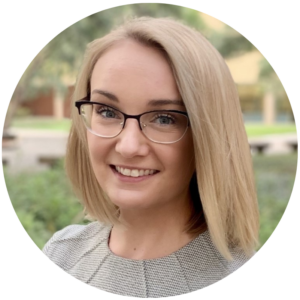 |
|
Kelly Clark, Ph.D., is a Nationally Certified School Psychologist and Provisionally Licensed Psychologist. As an Assistant Professor at Louisiana State University, Dr. Clark directs the School Wellness, Engagement, and Lifelong Learning (SWELL) Lab. Dr. Clark’s research is centered on promoting student mental health and academic functioning within school settings and beyond. Specifically, she is interested in students’ perception of school climate and their sense of school belonging, as well as academic engagement (affective, behavioral, cognitive) and achievement. Dr. Clark’s conceptualization of mental health considers not only psychological risk factors and symptomatology, but also the presence of protective factors and subjective well-being through the dual-factor model of mental health. Dr. Clark’s research on school mental health includes a focus on school-based suicide prevention through universal screening, risk assessment, and educator trainings. She is committed to centering schools as access points for youth to receive equitable and responsive assessment and intervention to promote their wellness. Website and Contact Information |
 |
|
Lillian Durán, Ph.D., earned her degree in Educational Psychology from the University of Minnesota and is a Professor in the Department of Special Education and Clinical Sciences at the University of Oregon. She holds a B.A. in Elementary Education from Antioch College and a M.A. in Education and Human Development from the George Washington University. Her research is focused on improving instructional and assessment practices with multilingual children. She is currently involved in several efforts developing Spanish language and literacy assessments from preschool to 6th grade. She also is the project director on several Office of Special Education Programs training grants focused on preparing master’s and doctoral students to serve traditionally marginalized populations with a focus on equity and improving educational outcomes. Dr. Durán frequently delivers presentations nationally on the topic of recommended practices in language and literacy practices with multilingual learners and she has served on multiple equity and diversity councils including the National Association for Young Children and the Division for Early Childhood. Prior to Dr. Durán’s work in higher education she worked for 9 years as an early childhood special education teacher both in Prince George’s County, Maryland and in rural southwestern Minnesota. Website and Contact Information |
 |
|
Kelly Farquharson, Ph.D., is a Speech-Language Pathologist and Associate Professor at Florida State University. She directs the Children’s Literacy and Speech Sound (CLaSS) Lab, which has a mission to help children with speech and language impairments achieve classroom success. To this end, she has two related lines of inquiry. The first is through the lens of implementation and de-implementation science, in which she works with school-based speech-language pathologists to identify the barriers and facilitators to their decision making for children with speech sound disorders. In the second, examines child-level variables such as speech sound production, vocabulary skills, cognitive ability, phonological awareness, word reading, spelling, and aspects of children’s home and school environments. Her work to date has resulted in nearly 50 peer-reviewed publications and is funded by internal and external sources. Dr. Farquharson has also disseminated her work through social media, such as her Instagram account @classlab_FSU. On Instagram, she hosts a popular weekly series called Phonetics Friday, in which she highlights the clinical relevance of phonetic science. Dr. Farquharson is a sought-after presenter, with speaking engagements in more than 25 states and 3 countries. She has also been interviewed on multiple podcasts. Website and Contact Information |
 |
|
Kevin Filter, Ph.D., is a Professor of Psychology and Distinguished Faculty Scholar at Minnesota State University, Mankato where he teaches in the School Psychology Psy.D. program. He serves as a lead trainer for the positive behavior interventions and supports (PBIS) initiative in Minnesota and is former president of the Minnesota School Psychologists Association. As Co-PI on a current IES grant, Dr. Filter’s research addresses issues of frontline implementation of evidence-based prevention programs such as PBIS with an emphasis on implementer buy-in. He is currently developing a measure of frontline implementer buy-in and is investigating tailored implementation strategies to address individual and schoolwide buy-in. Previous published work has addressed applied behavior analytic components of PBIS and the tier 2 intervention, Check-In/Check-Out. Website and Contact Information |
 |
|
Sycarah Fisher, Ph.D., is an Associate Professor of School Psychology in the Department of Educational Psychology at the University of Georgia. Dr. Fisher’s research focuses on the implementation of school-based mental health and substance use interventions and the identification of risk and protective factors related to minority mental health and substance use. Dr. Fisher is particularly interested in the use of technology to improve the implementation of evidence-based practices to address adolescent mental health and substance use and reduce racial disparities. Dr. Fisher also engages in community based participatory research by collaborating with local school districts and community agencies to further support access to evidence based mental health and substance use interventions for minoritized populations. Website and Contact Information
|
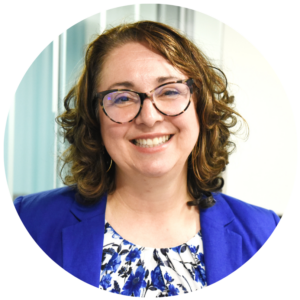 |
|
Tiffany Hogan, Ph.D., is a Professor in the Department of Communication Sciences and Disorders at MGH Institute of Health Professions, Research Associate at Harvard University, Director of the Center for Translational research, Implementation science, and Dissemination for Equity (cTIDE) in Communication Disorders, and a pediatric Speech-Language Pathologist. Dr. Hogan’s research, community engagement, and dissemination aims to improve school-based assessment and intervention for children with language-based learning disabilities, including dyslexia and developmental language disorder (DLD). Her research is funded by the National Institutes of Health’s National Institute on Deafness and Other Communication Disorders and the Department of Education’s Institute of Education Sciences. Dr. Hogan provides doctoral research training for students in the PhD in Rehabilitation Sciences program at the MGH Institute, the PhD in Speech and Hearing Bioscience and Technology program at Harvard University, as well as undergraduate and graduate students from numerous fields of study. She teaches graduate courses in school-based literacy assessment and intervention, leading literacy change, and professional issues in academia. She is a Fellow of the American Speech-Language-Hearing Association, an elected board member of the Society for the Scientific Studies of Reading, a conference organizer for The Dyslexia Foundation, International Dyslexia Association and MGH Institute’s Implementation Science IS for all program, co-founder of the informational website DLDandme.org, and podcast creator and host for seehearspeakpodcast.com. Website and Contact Information |
 |
|
Tiedan Huang, Ph.D., is an Assistant Professor of Educational Leadership at the Graduate School of Education, Fordham University. Huang earned her doctoral degree in Educational Leadership and Master’s in Instructional Design and Development from Lehigh University, as well as a bachelor’s degree in English from the University of International Relations, Beijing, China. Prior to her career at Fordham, she worked as an instructional designer and research associate at Lehigh University and Temple University. Huang’s current research focuses on principal time use, school climate, and the workforce in K-12 schools. Her work also considers the influence of social, cultural, and political contexts on leadership practices and student achievement. Huang’s methodological expertise lies in research methodology (e.g., educational intervention design and program evaluation) and high-level statistical modeling. She also has rich experience working with large-scale national and international datasets in education. Website and Contact Information |
 |
|
B. K. Elizabeth Kim, Ph.D., is an Associate Professor of Community Health Sciences at the University of California, Los Angeles Fielding School of Public Health. She previously worked as an Assistant Professor at the University of Southern California Suzanne Dworak-Peck School of Social Work after completing her postdoctoral scholarship at the Berkeley Center for Prevention in Social Welfare. Her research seeks to bridge the research-practice gap in service delivery models to address the mental, emotional, and behavioral (MEB) health needs of youth in and at-risk for being involved in the juvenile justice system. Her research has contributed to three areas: 1) identify targets and timing of interventions; 2) specify service needs of youth in school and justice systems; and 3) refine community-based strategies to improve services for youth and families impacted by the juvenile justice system. Together, her research seeks to address MEB health inequity, experienced primarily by youth of color over the life course, using evidence-based interventions. Website and Contact Information |
 |
|
Angus Kittelman, Ph.D., is an Assistant Professor of Special Education at the University of Missouri in the College of Education & Human Development. His areas of study include multi-tiered system of supports (MTSS), implementation science, and implementing and evaluating social, emotional, and behavioral interventions for adolescents in high schools. Angus serves as a Co-PI and data analyst on federal grants that focus on implementing and scaling interventions in high schools and identifying variables facilitating implementation of MTSS. He is a recipient of the 2023 E. G. “Ted” Carr Initial Researcher Award from the Association for Positive Behavior Support (APBS). Website and Contact Information |
 |
|
James Lee, Ph.D., BCBA-D, is an Assistant Professor in the Department of Psychiatry and Behavioral Sciences at the University of Washington and the Seattle Children’s Autism Center. His research focuses on developing, adapting, and implementing evidence-based practices among underserved families of young autistic children who live in low-resourced communities both domestically and internationally. James has conducted several studies examining feasibility, effectiveness, and social validity of interventions for caregivers of young autistic children, and he is the lead developer of the Cultural Adaptation Checklist. His primary interest is using implementation science to enhance access to EBP among marginalized families. James’s research is funded by several sources, including ITHS Clinical Research Career Development grant (KL2; 2023-2026), Organization for Autism Research (Applied Research; 2023-2025), Office of Global Affairs of the University of Washington (Global Innovation Funds; 2023-2024), and the AIR-P Network (Feasibility Pilot; 2023-2024). James has received many honors and participated in several fellowships, including the 2022 Cultural Diversity Research Award from the International Society for Autism Research. Website and Contact Information |
 |
|
Faith Summersett Williams, Ph.D., is a Research Assistant Professor of Pediatrics at Northwestern University Feinberg School of Medicine. More specifically, she is trained as a pediatric psychologist, and currently works as a behavioral scientist in the Potocsnak Division of Adolescent and Young Adult Medicine (DAYAM) at Ann & Robert H. Lurie Children’s Hospital where she leads the research program for DAYAM’s Substance Use and Prevention Program (SUPP). Her academic and clinical interests are focused on health equity and justice to center the values and needs of historically marginalized communities. She combines this perspective with organizational, implementation and dissemination science frameworks to examine health inequities in relation to structural disenfranchisement with the goal of reducing inequities in healthcare delivery. Website and Contact Information |
 |
|
Adrea Truckenmiller, Ph.D., NCSP, is an Associate Professor of Special Education at Michigan State University and is principal investigator of the IES-funded project, the Writing Architect. Dr. Truckenmiller collaborates with educators to improve decision-making based on writing and reading assessment within a MTSS framework to ensure that all students receive equitable access to evidence-based instruction tailored to their development. Her accomplishments include over $5 million in extramural grants and contracts, more than 35 peer-reviewed publications, and service on several school psychology editorial boards, reading journal editorial boards, and the Lexia Educational Leadership Council. Website and Contact Information |













